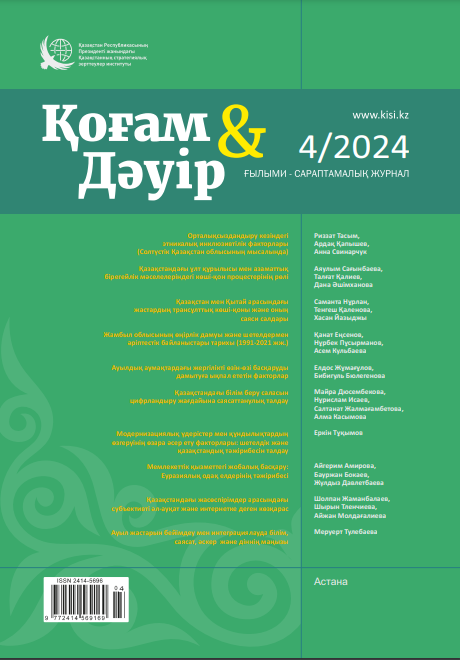Abstract
The article explores the interplay between modernization processes and value transformation in Kazakhstan, drawing on international and domestic experiences. The author analyzes the impact of Soviet legacy, socio-economic, and demographic changes on the formation of contemporary political culture and the value system of Kazakhstani society. Particular attention is given to Inglehart's concepts of the shift from traditional to post-materialist values, as well as the influence of economic growth, urbanization, and demographic trends on value transformations. The study examines retraditionalization during the post-Soviet period and the effects of external factors such as migration and global trends. It concludes on the necessity of harmonizing tradition and modernization for Kazakhstan's sustainable development. The experiences of Eastern European and Asian countries illustrate the importance of considering national characteristics in modernization efforts. The paper emphasizes the critical role of aligning social and economic reforms with cultural and historical specifics to achieve harmonious societal development.

This work is licensed under a Creative Commons Attribution 4.0 International License.
Copyright (c) 2024 ҚОҒАМ ЖӘНЕ ДӘУІР


